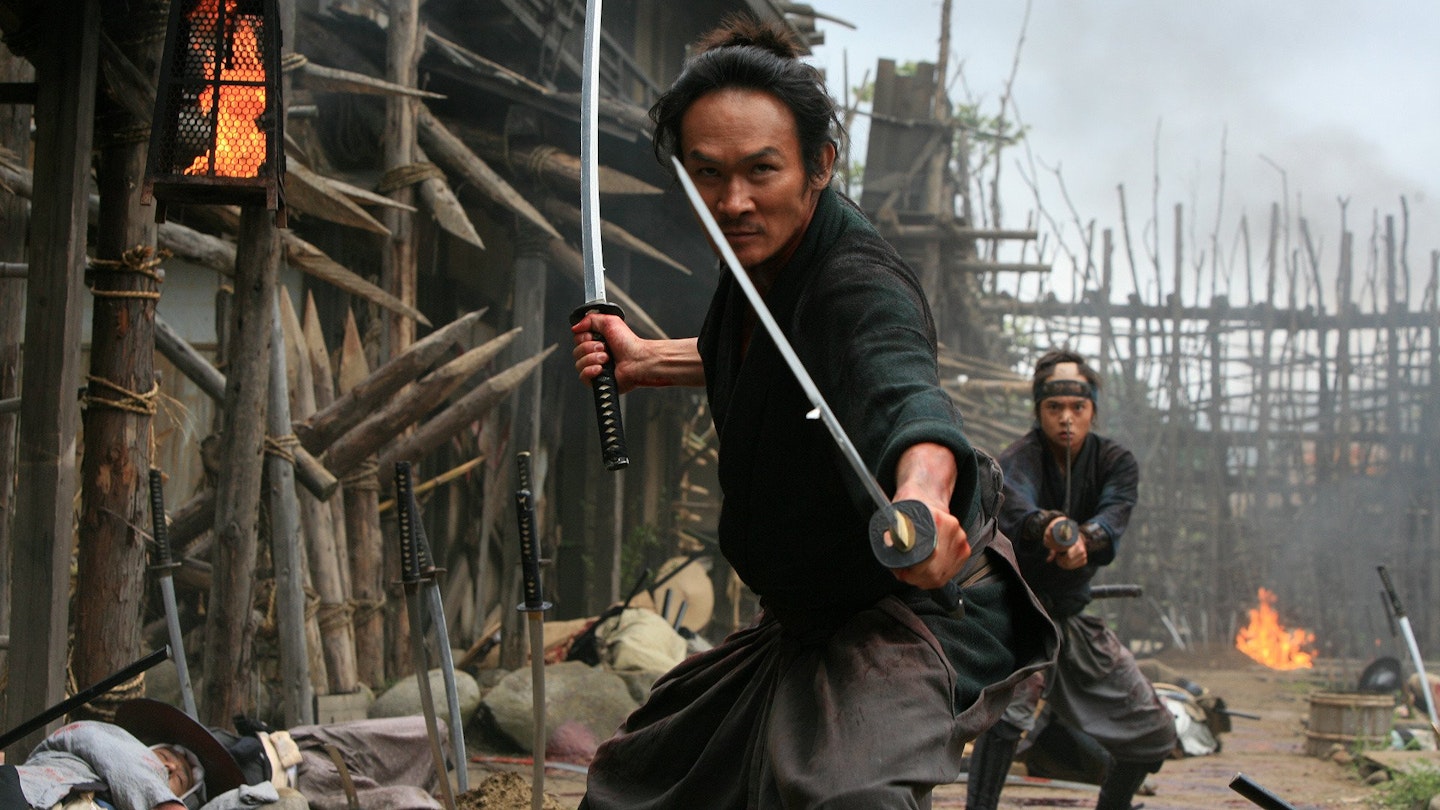Eventually, Takashi Miike will make a Godzilla film. Best known outside Japan for outrageous, surreally violent efforts (Audition, Ichi The Killer), Miike is among the most prolific of all contemporary filmmakers, regularly turning out a handful of movies a year at a rate that bests even the busy periods of Fassbinder or Roger Corman. One of Miike’s projects seems to be to turn his hand to every genre of Japanese popular cinema, from the Ring-like ghost story One Missed Call to the children’s fantasy The Great Yokai War. 13 Assassins, a remake of a 1963 film, is his take on the Kurosawa-style samurai historical drama (jidaigeki).
The irrepressible auteur mostly reins in his tendency to excess in the first half, which is all classical set-up, calm character introductions and stoic declarations about honour and duty — though the evil Naritsugu (Gorô Inagako) is as depraved a baddie as any Miike creation, given to using the women and children of his enemies for archery practice. The second half, however, is all action. Having put together his team of 12 loyal, honourable, steadfast samurai (and one insane disfigured peasant for contrast), the canny Shinzaemon (Kôji Yakusho) chooses a deserted community on the path the villain must take and prepares with booby-traps “a village of death” where an army can be battled by a few men.
A slight problem is that of the 13 heroes, only a couple have much personality; most of the good guys here are so stoic and noble that only the madman stands out (seven samurai are a far more manageable group in movie terms than this dozen-and-one swordsmen). An interesting conflict emerges between Shinzaemon and an old school rival who is now the villain’s chief retainer, over what value can be placed on loyalty when it’s owed to a complete maniac whose casual atrocities sicken even his own bodyguards. Nevertheless, the most Miike-like aspect of the film is the character of Naritsugu, who turns out to have some philosophical points to make in his depradations. Blandly handsome Inagako is a persuasive fiend, shockingly brutal but also weirdly spacey as he calmly wanders through a massacre with only mild interest. He even thanks the hero because this spectacular assassination attempt is the most exciting day of his life.
